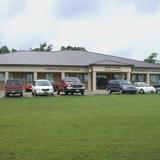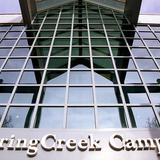- Paris Junior College is an innovative and comprehensive community college that advances the life-long educational development of students consistent with their needs, interests, and abilities while strengthening the economic, social, and cultural life of its diverse community. The College provides high-quality, flexible academic transfer and career-focused educational programs and services through a commitment to teaching and learning excellence within an accessible and supportive environment.
School Highlights
Paris Junior College serves 6,433 students (31% of students are full-time).
The college's student:teacher ratio of 25:1 is higher than the state community college average of 23:1.
Minority enrollment is 40% of the student body (majority Hispanic), which is less than the state average of 74%.
Quick Stats (2025)
- Enrollment: 6,433 students
- In-state tuition: $2,292
- Out-state tuition: $3,420
- Student:teacher ratio: 25:1
- Minority enrollment: 40%
- Source: Integrated Postsecondary Education Data System (IPEDS)
Top Rankings
Paris Junior College ranks among the top 20% of public schools in Texas for:
Category
Attribute
Affordability
Debt For Students
School Overview
The teacher population of 257 teachers has stayed relatively flat over five years.
Paris Junior College
(TX) Community College Avg.
Carnegie Classification
Associate's Colleges: High Transfer-High Nontraditional
Baccalaureate/Associate's Colleges: Associate's Dominant
Institution Level
At least 2 but less than 4 years
At least 2 but less than 4 years
Institution Control
Public
Private, for profit
Total Faculty
257 staff
262 staff
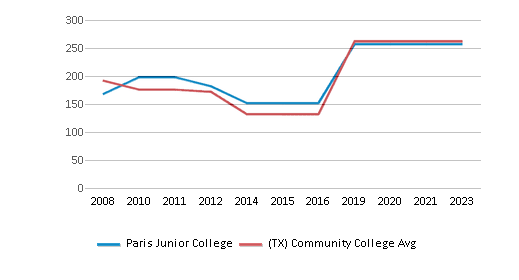
School Calendar
Student Body
The student population of Paris Junior College has grown by 32% over five years.
The student:teacher ratio of 25:1 has increased from 17:1 over five years.
The Paris Junior College diversity score of 0.58 is less than the state average of 0.70. The school's diversity has grown by 9% over five years.
Total Enrollment
6,433 students
1,396 students
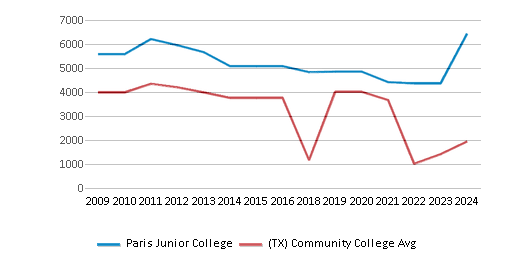
Student : Teacher Ratio
25:1
23:1
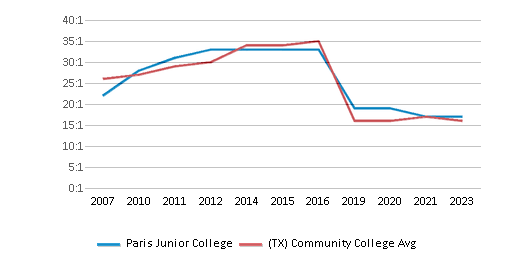
# Full-Time Students
2,025 students
890 students
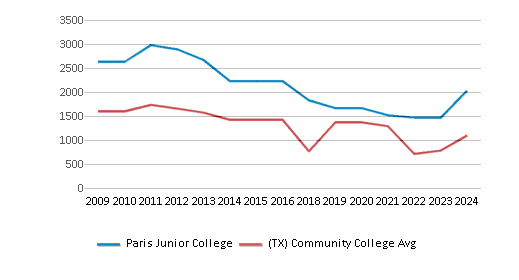
# Part-Time Students
4,408 students
4,022 students
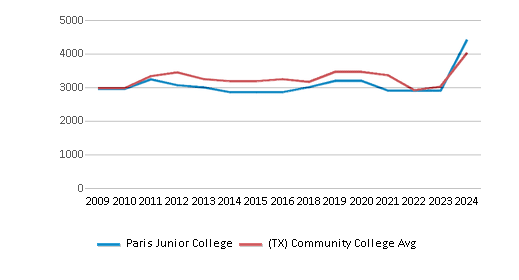
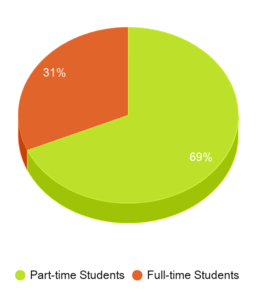
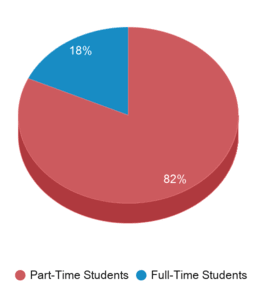
# Enrollment Undergraduate
643 students
403 students
# Full-Time Undergraduate Students
2,025 students
890 students
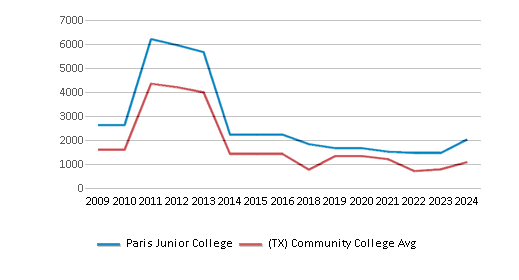
# Full-Time Graduate Students
n/a
40 students
# Part-Time Undergraduate Students
4,408 students
4,022 students
# Part-Time Graduate Students
n/a
47 students
Total Dormitory Capacity
260 students
252 students
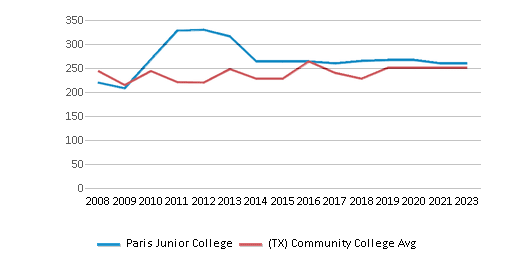
% American Indian/Alaskan
1%
n/a
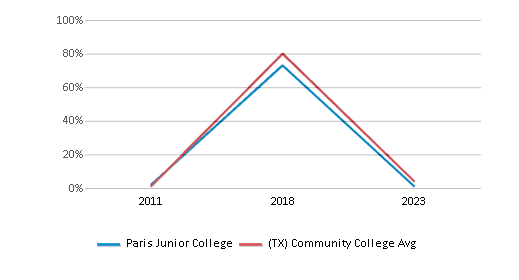
% Asian
1%
6%
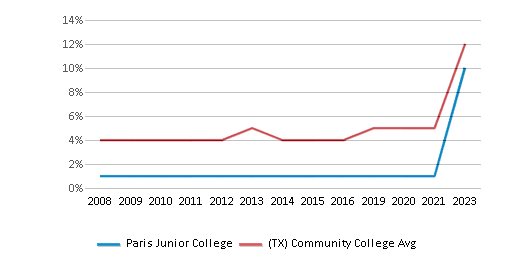
% Hispanic
21%
46%
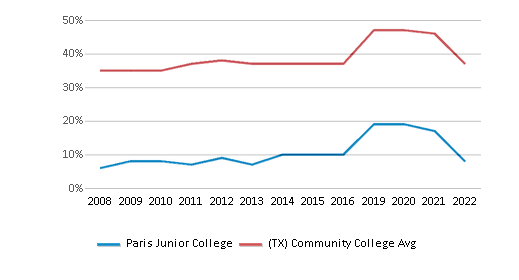
% Black
11%
14%
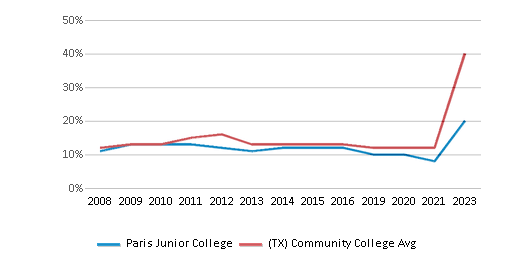
% White
60%
26%
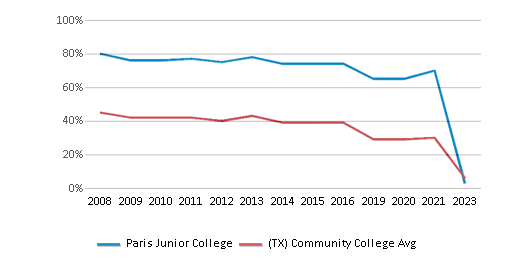
% Hawaiian
n/a
n/a
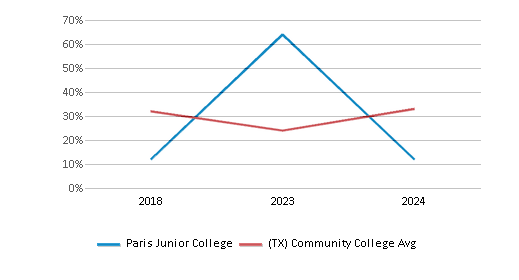
% Two or more races
4%
3%
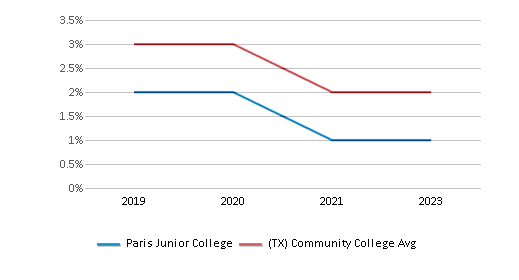
% Non Resident races
1%
2%
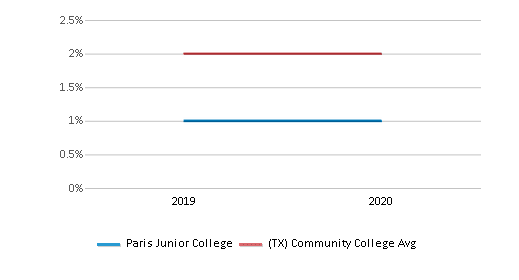
% Unknown races
1%
3%
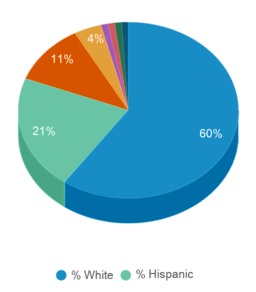
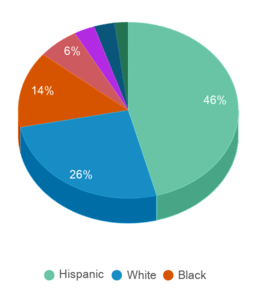
Diversity Score
0.58
0.70
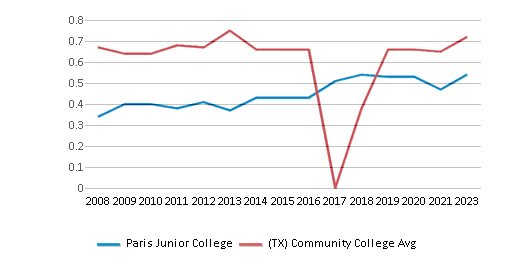
College Completion Rate (Students who graduate in less than 4 years)
0.3514%
0.5469%
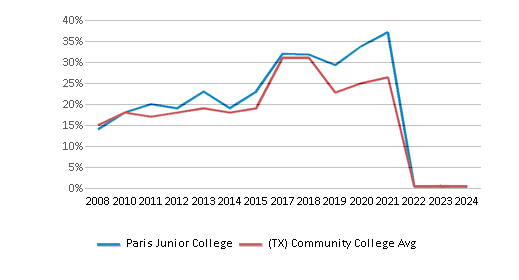
College Completion Rate (Students who graduate in 4 years or more than 4 years)
n/a
0.3357%
Average Graduate Earnings (10 Years)
$30,900
$34,600
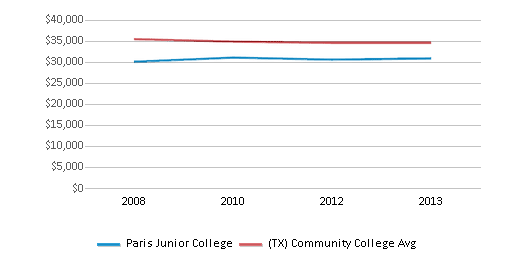
Tuition and Acceptance Rate
The public in-state tuition of $2,292 is less than the state average of $3,316. The in-state tuition has declined by 42% over four years.
The public out-state tuition of $3,420 is less than the state average of $5,750. The out-state tuition has declined by 37% over four years.
In-State Tuition Fees
$2,292
$3,316
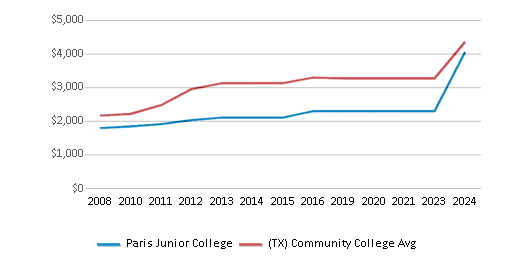
Out-State Tuition Fees
$3,420
$5,750
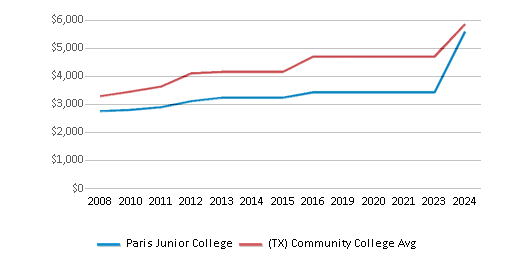
% Students Receiving Some Financial Aid
84%
84%
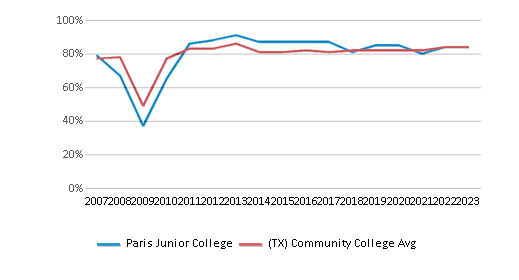
Median Debt for Graduates
$4,500
$10,765
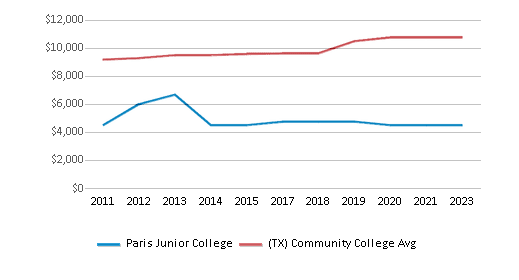
Median Debt for Dropouts
$3,500
$5,500
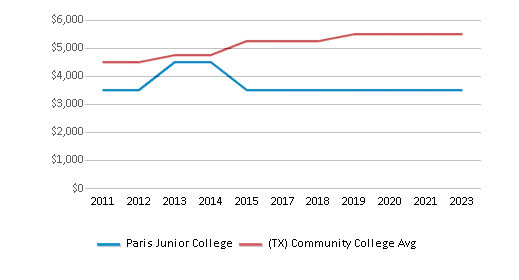
Acceptance Rate
n/a
81%
Source: 2024 (or latest year available) Integrated Postsecondary Education Data System (IPEDS) , School Administrators
School Notes
- Paris Junior College was established by the Paris Independent School District on June 16, 1924, in response to the community's need for an institution of higher learning. The campus was moved to its present site of fifty-four acres in 1940. The college began adding new facilities at its campus in 1963, and a building program continued until 1978 during which time the J.R. McLemore Student Center, dormitories, Natural Sciences and Mathematics Center, applied science annexes, Aikin Center for Applied Sciences, Center for Musical Arts, Lifelong Learning Center, married apartments, and the Mike Rheudasil Learning Center were built. Included in the Learning Center/Library is the Welma and A.M. Aikin Jr. Regional Archives. Paris Junior College's main campus is located in Paris, Texas. Paris Junior College operates technical centers in Sulphur Springs and Greenville, and conducts classes on the Texas A&M University-Commerce campus. Paris Junior College offers Associate in Arts, Associate in Science, and Associate in Applied Science degrees, as well as Certificates of Proficiency in technical/vocational fields. The college has expanded its academic curriculum through the years to encourage associate degree and university transfer candidates. Since establishing its first vocational program, jewelry and watchmaking in 1942, the college has been aggressive in adding technical/vocational programs that will benefit students entering the workforce. PJC is accredited by the Commission on Colleges of the Southern Association of Colleges and Schools to award the associate of arts degree, the associate of science degree, the associate of applied science degree, and certifi cates of proficiency.
Frequently Asked Questions
How much does Paris Junior College cost?
Paris Junior College's tuition is approximately $2,292 for In-State students and $3,420 for Out-State students.
What is Paris Junior College's ranking?
Paris Junior College ranks among the top 20% of community college in Texas for: Least expensive tuition and Least debt for graduating students.
Recent Articles

Obtaining Your Bachelor's Degree at a Community College
Explore the evolving landscape of community colleges offering bachelor's degrees, addressing affordability, accessibility, and workforce needs.

A to Z of Community College Certificates and Courses
From business and healthcare to technology and skilled trades, the article showcases the breadth of options available to students seeking to enhance their knowledge, develop new skills, or pursue career advancement.

What is a Community College?
This comprehensive guide explains what a community college is, its history, and its role in higher education. It covers the types of programs offered, differences from four-year colleges, benefits of attending, and important considerations for prospective students, providing valuable insights for those exploring educational options.

